|
Though, as I've mentioned, I thought the documentary Three Identical Strangers was tremendous and that I was extremely surprised it didn't get an Oscar nomination, I'm not someone who talked about how the Academy "snubbed" anyone. That's because five other people or films were nominated in a category that voters thought were better, and if you added the "snubbed" person in, then you'd have to drop one of those already nominated out. So, when someone says that so-and-so were "snubbed" I always ask which of the nominees they'd drop as undeserving. Most of the time there's no answer.
So, I'm not going to talk about the Oscar nominees and who I think is most deserving, or who got screwed and was left out. What I will reference, though, is the oddity of Oscar categories -- in particular Best Supporting Actor or Actress. It's a category that I think the Motion Picture Academy has to address and figure out how to get it right. It's most uncertain than the NFL rule for what officially makes a catch. The category has long had its uncertainties. The most notable may be when George Burns won a Best Supporting Oscar for The Sunshine Boys. It was certainly lovely to see him win, but there is no way on earth that it was a supporting role. The movie -- and Neil Simon play before it -- is about the two old vaudeville actors. And he and Walter Matthau had equal parts. That's the case, too, in the wonderful movie Green Book. Viggo Mortensen got a nomination as Best Actor, while Mahershala Ali was nominated as Best Supporting Actors. The movie is about the relationship that the two men had on their trip together through the South. Neither supported the other -- they were complementary. But perhaps more odd is The Favourite. The film is about the battle between two aspirants for the Queen's favourite. The Queen is almost a secondary character, reactive to the two women trying to one-up each other and gain the most important position in court. And yet, Emma Stone and Rachel Weisz who played the two competing women have been nominated as Best Supporting Actress. And Olivia Colman as Queen Anne is nominated as Best Actress. (Side note: for fans of the Netflix series, The Crown, Olivia Colman has been signed to play another Queen, taking over the role of Queen Elizabeth from Clair Foy.) As it happens, the British have done the same with The Favourite, and their BAFTA Awards mirror those of the Oscars. I suspect that no one wanted three nominees in the same categories, and further the film didn't want all "Supporting" nominees and no Best Actress. And I think it's generally up to the movie producers to decide which category they want to nominate actors and actresses in. Why it broke down this way, I have no idea. Perhaps they thought Ms. Stone and Ms. Weisz would have better chances to win in the Supporting categories. And, as I said, they didn't want a movie with no "lead." I'm sure there are some who can do their best to justify the breakdown for The Favourite. I will only say that the movie is called "The Favourite." It is about who will be the "Favourite." That's why they called it The Favourite. And no, I don't expect this to change. But then, as readers of these pages have long-since figured out, that doesn't tend to stop my opining on such things...
0 Comments
A few years ago, my friend Vicki Riskin asked me to read the first draft of her new book that she'd just finished writing. I said I was very happy too -- though in truth as happy as I was, I was also wary, almost terrified. After all, while most writers say that they want your honest opinion, they don't. What they want is to hear you say, "This is my absolute 100% honest opinion -- not since William Faulkner has literature moved me so much." But this was more of a challenge. Not only was it a book that Vicki was giving me, over 400 pages, not a screenplay that one can breeze though in a couple hours, but far, far, FAR more problematic is that it was a memoir about her parents. If I didn't like -- no, if I didn't love -- the book, how on earth do you tell someone that their story about their parents isn't any good. The added challenge here is that Vicki's parents were renowned. Her father was screenwriter Robert Riskin, one of the founders of what is now the Writers Guild of America, as well as the long-time partner of director Frank Capra, and the Oscar-winning screenwriter for It Happened One Night (the first film to win Oscars for Best Picture, Best Director, Best Screenplay, Best Actor and Best Actress). Robert Riskin was also the writer of Mr. Deeds Comes to Town, Meet John Doe, You Can't Take It With You, Lost Horizon, Lady for a Day (which was later remade by Capra, as well, as Pocketful of Miracles), and many, many more. And he headed the U.S. government's Bureau of Motion Pictures during WWII. (I wrote about him in more detail here.) And her mother was even more famous -- honest -- the actress Fay Wray, best-known, of course, for starring in King Kong, but also with a half-century-long career of making more than 100 films, and even wrote Broadway plays and books. And an autobiography with one of the best titles ever -- On the Other Hand. I knew that Vicki was an excellent writer. She herself is a former president of the Writers Guild. And the writer and producer of numerous screenplays and TV movies. (Not to mention a former practicing psychologist, an international board member for 12 years of Human Rights Watch, and recipient of the WGA's Valentine Davies Award for "bringing honor to writers everywhere.") But writing a book is another matter entirely from a screenplay. Especially one that's a memoir of your parents. So, it was with great trepidation that I opened the fist page of that first draft with clenched fingers and clenched jaw. And it's important that you know all this as I dive into my reaction to it all. The book was tremendous. I don't say this lightly. Or as a friend of Vicki's. I say it in relief. I was terrified about what to say if to her it wasn't any good. By page 30, I was overjoyed. By the end, I was sorry to see it over. And I said this to her not to be nice, but knowing that if I'm not honest with the author when they've given me a draft to read for comments, I don't do them any good. Worse, I'm doing them a disservice because they can't fix what needs work. And I did give her some comments about things I thought should be addressed. But the overriding first comment was that she'd written an absolutely wonderful book. And before I go any further, it's important for me to interrupt here to say that I'm not alone in thinking this, because after battling the hellish and uphill world of publishing, Vicki broke through the near-impenetrable walls and sold the book to Pantheon Books (part of Knopf Doubleday) and it's being released in just a few weeks, on February 26, 2019. The title is Fay Wray and Robert Riskin: A Hollywood Memoir. And it's not just me and the publisher who love the book. Among the critiques is Kirkus Reviews saying "In this engrossing tribute to her parents, the author provides a thoughtfully documented portrait of early Hollywood. A must-read for fans of this era of film history." And Kenneth Turan, film critic of the Los Angeles Times wrote, "Victoria Riskin brings a graceful touch and a fluid writing style to one of the great real-life Hollywood love stories in this warm, evocative and deeply moving tale." And more. Like biographer Michael Korda of such Hollywood tales as Charmed Lives and Queenie, and a former editor-in-chief of Simon & Schuster, who says, "Victoria Riskin has written a fascinating, richly detailed and superbly illustrated account of the lives of two remarkable people," adding that "This is not only the love story of two brilliantly talented people, it is a brilliant piece of cinematic history, at one robust, touching and deeply satisfying.". And he finishes with "For anybody who is interested in the movies, Victoria Riskin’s book will be must reading." So, I'm not lying. It is tremendous. Beyond the writing, it did something most memoirs don't do, which is note flaws in character, especially when those characters are your parents. But thankfully, while being open and honest -- even going into their romantic relationships before meeting one another (Fay Wray had had a loving, but very difficult first marriage that ended with her husband passing away, but also a romance with the playwright Clifford Odets and what was largely a one-way relationship with an infatuated Sinclair Lewis, all of which the book deals with) -- both main characters come across as pretty wonderful, even noble people, but not white-washed by an adoring child, rather as well-rounded individuals with highs and very real struggles, all deeply documented and supported by their actions professionally, politically, with family, and through social concerns. In fact, after finishing reading the book, one of Vicki's nervous questions to me was "How did my parents come across? Were they okay??" I thought for a moment and then finally answered, "They come across like I wanted them to adopt me by page 140." (I should note that a few years back I had reason to meet her mother one time when she was in her 90s, and in just that brief time she was as warm and lovely as she comes across in the book.) (Mother and early author.) But the main reason I loved the book is that it did in a memoir what I look for when reading biographies of any sort. I tend to wade in very warily when I read biographies, most-especially celebrity biographies. What I like in any memoir is not so much that it's just nice tales of famous people's lives, but that it's as much a history book of the times with "edges" and shadings that give context. And to my great pleasure, this is that. It is not a mere collection of stories by a loving daughter putting her family world in the most-shining light, but rather about the Depression, the Golden Age of Hollywood, world war, McCarthyism (with her father being a target, despite his work for the government's war effort) and more -- at the center of which are the two separate lives of the author's parents pushing through it all until they finally meet. Fascinatingly, that meeting doesn't even come until the last third of the book, so it's like following a winding path of successes and major hurdles before simply getting to that point. And its portrait of Hollywood is no snapshot thing, but encompassing since her mother's 57-year movie career began in the silent film era up to an acclaimed TV movie with Henry Fonda in 1980, the true-story Gideon's Trumpet (written in a nice bit of life's kismet by her son-in-law, and Vicki's husband, David Rintels). And Vicki's father's career started with SIX movies in 1931 -- including the classic Platinum Blonde with Jean Harlow -- and continued through TV work in the mid-1950s, before his untimely death from a stroke. And included his involvement with Frank Capra and also in the creation of the then-called Screen Writers Guild.. (Okay, here's another quote about the book, worth mentioning since it specifically is in regards to the Golden Age, from Kirk Douglas. "I was always curious about life in Hollywood before I came here. I found out in this fascinating book. And wow! What a story it is!") And the thing is, the book doesn't just tell Hollywood Golden Age stories about her parents -- but from all manner of perspectives. There is a long, detailed, fascinating diversion into the life history of Merian C. Cooper, who directed King Kong, that is as adventurous and odd as that famous movie itself. And some of the best stories in the book have nothing to do with her parents at all, but are about that era in Hollywood. (I'll digress a moment with my favorite story from the book about the screenwriter Jo Swerling who was one of Robert Riskin's closest friends -- and who with his wife Florence were godparents to Vicki. Swerling was a highly-accomplished writer whose many credits included It's a Wonderful Life, The Pride of the Yankees, and co-writer of the Broadway musical -- and its film adaptation -- Guys and Dolls. Swerling was a no-nonsense fellow not easily pushed around and working at the time at Columbia Studios, run by the dictatorial and oppressive Harry Cohn. One day Swerling's wife came to visit him at the studio. She got flustered this day and rammed her car in the parking lot into Harry Cohn's very expensive Rolls Royce. The tyrannical Cohn was furious and came storming into Jo Swerling's office. "What the hell was your wife doing smashing into my car?!" he screamed. Swerling calmly looked back and finally replied, "She probably thought you were in it.") The book also includes my favorite "writer's story" that I'd read long before I even met Vicki (in fact, when I was still in college) and as it happens is attributed to her father. Though Vicki knows the tale, she notes that she's never been able to verify whether it's true or apocryphal. When Robert Riskin and Frank Capra teamed up on their series of classic movies, it was director Capra who got all the acclaim, known throughout the press and to movie audiences for his "Capra Touch." Indeed, Capra was happy to push his prominence throughout his career, and when writing his autobiography called it The Name Above the Title. One day, as the story goes, Robert Riskin came into Capra's office, dropped a ream of blank paper on the desk, pointed to it and supposedly said, to the eternal gratitude of screenwriters everywhere, "Let's see you give that the famous Capra Touch." (Robert Riskin on the left, with Frank Capra.) But more that wonderful stories like this, the book is about a much larger world that eventually brings these two, endearing people together. Helping too is that it's wonderfully written by a daughter who is herself a terrific, professional writer with great skill and insight. The risk of all memoirs like this is that it will fall into adulation, and in fairness while there are a few times when the book does creep towards that, it consistently pulls itself away by adding context, further depth and then moves on. I sense that's because (beyond being so well-written) underneath it all is the running theme that the best biographies have in making them not just specific on fascinating lives, but universal, asking who we are and how did we get here? The book is a gem. For those interested, you can pre-order it here. And if you want to read more about the book, or people involved, or see more photos, this is the website for it all. (Mother at age 90 and later author at the 1997 Academy Awards.)
The other day, when sending out my Media Alert about the documentary Three Identical Strangers, I mentioned that it was worth getting the DVD even if you watched the film on CNN because one of the bonus features on the disk was a panel discussion and audience Q&A after a screening. I believe this is that panel discussion -- if not, it's one that's very similar. The panel is the director Tim Wardle and two surviving brothers David Kellman and Robert Shafran, along with one of their lifelong, very-close friends, Ellen Savonne (I'm not sure if the spelling of that is right...) What's particularly interesting is that the conversation offers some updated information and also the brothers' discussion of their reaction to new information that they learned only about after having seen the documentary. Once again, Trump is trashing the intelligence service. That raised a question in my mind that I hope some reporter asks him or the press secretary --
If Trump is disregarding the intel gathered by *ALL* 17 U.S. intelligence services that each confirm what the others find -- where then is he getting HIS secret, contradictory "information"??? From Sean Hannity? From blogs?? From real estate developer Jared Kushner? (A follow-up question, sir: where do they get their secret info?! From personal contacts that they alone have and which the CIA, FBI, NSA, Defense Department, Director of National Intelligence, State Department and the 11 others intelligence agencies ALL together missed?) Or -- Russia? It's done, it's here, and -- yes -- as always, it's very long.
My annual overview of this year's Consumer Electronics Show is finished, and it's now posted online at the Writers Guild of America website. Because posting it and the myriad of photos requires a lot of coding, I'm just going to link it it there, rather than duplicate all that work here. Hat's off to Dexter Kim and Kristin Allen at the WGA for the work. Much appreciated. You can find the article at this link. A good amount of the material has been posted here, but by no means most of it. So, even if you followed the travails that I wrote about every day during the show, the article contains mostly new material -- and hopefully in a structure that gives it all perspective, rather than just my random ramblings around the show floor. And one other thing I say every year -- and make clear in the article: it's long. Not cute long, but "Oh, my God!!! I can't believe it's this long and the end isn't even in sight!!!" long. But it's intended to be a look at the breadth of the full show to get a sense of the year ahead in technology, not just notes about the splashy items. Hey, don't think of it as an interminably long article, but a blessedly short book. And you don't have to read it all in one sitting. One caveat though -- if you don't like looooooooong articles, don't read it. And don't complain to me that it's so long. I know it is. I just told you. And I explained the reason for it. But for those who do want to know about as much of CES as possible and get an idea of what the tech world looks like for the home, business, health, communications and more, check it out, here. Some brief thoughts on two movies I saw over the weekend. I thought The Upside was terrific. Kevin Hart is wonderful, and gives a rich performance unlike any he’s done before. And given the confines of his role, Bryan Cranston can only act with his face and voice, and yet is tremendous. Also, there's a smart script that’s very well directed. It telescopes things a bit more on occasion, which simplifies events, though that also makes it a much-easier movie to watch. The film is based on a true story and a French film, telling of the relationship of an incredibly wealthy quadriplegic who intentionally hires a wildly-unqualified ex-con to be his caregiver since he's no longer interested in being well-cared for. The movie is often very funny, but in no regard is it "a comedy," and often very serious. But it blends the humor and drama well. This is a rarity, a trailer that does an excellent job giving a sense of the film. It does give away a couple of good , important scenes, though not really "plot points" per se, so if you want to avoid those you've been warned. The other was a documentary. The Great Buster: A Celebration. This was written, directed and narrated by Peter Bogdanovich. I’m a huge Buster Keaton fan, so I was anxious to see this, and it was well-done, and extremely enjoyable. Lots of famous talking heads – and absolutely great material throughout. Above all, it was SO wonderful to hear a theater full of people laughing at Keaton's voluminous clips that remain hilarious and often (without exaggerating) awe-inspiring. (One very tiny quibble: when showing the famous flood sequence from Steamboat Bill Jr,, Bogdanovich leaves out mentioning that it wasn't part of the original script -- they'd been filming in New Orleans when there was a terrible hurricane and flood that devastated the city. But rather than having to scrap the film, Keaton worked it into the story.) Here’s the trailer. And it's the opposite of the one above -- despite the great clips I don’t like it at all because it doesn’t remotely give a sense of the documentary, making it look MUCH darker than it is. In fact, the film is hilarious. Bogdanovich deals seriously with the sad part of Keaton's life, to be sure, but he doesn’t dwell on it. And importantly he doesn’t end on it, but (at length) shows how Keaton had a resurgence later in his life and got his career back, including the remarkable 10-minute ovation at the Venice Film Festival that overwhelmed Keaton. And even that isn’t the end of the film, since Bogdanovich structures the documentary in a way that he saves the best -- Keaton's classic feature-length films -- for last. So, it ends very upbeat, and the whole film is a joy. But here’s the trailer regardless, because it has some great clips, and shows some of the many talking heads involved. Just know that the movie is much funnier and upbeat. (Note: you'll see a brief clip here of Keaton grabbing a streetcar as it zips by. and there is commentary about it in the film by Dick Van Dyke who knew Keaton and says, "I asked him if they sped the film up, and he said no. And there were no special effects. He just grabbed it." How on earth his arm wasn't ripped off is a wonder, but that scene -- and some other otherworldly stunts -- are what I was referring to by "awe-inspiring." You watch much of the material and wonder, "How on earth..." -- while laughing...) |
AuthorRobert J. Elisberg is a political commentator, screenwriter, novelist, tech writer and also some other things that I just tend to keep forgetting. Feedspot Badge of Honor
Archives
June 2024
Categories
All
|
|
© Copyright Robert J. Elisberg 2024
|
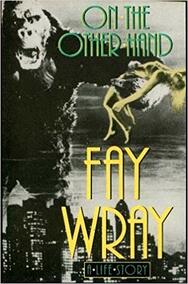
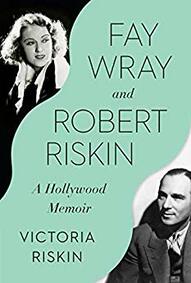
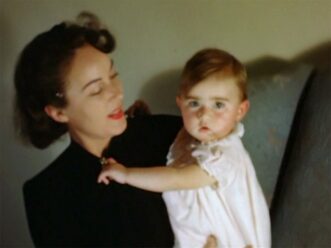
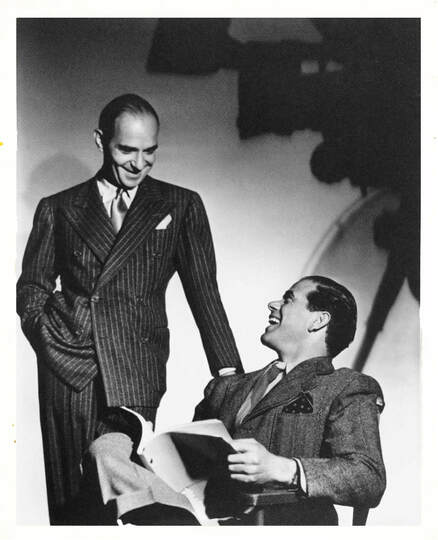
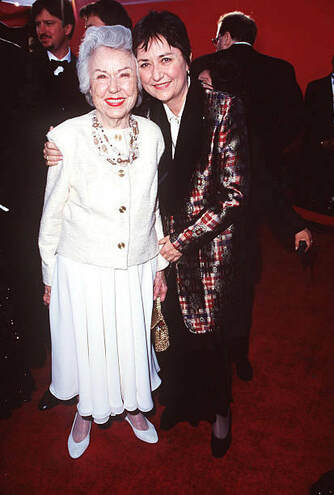







 RSS Feed
RSS Feed